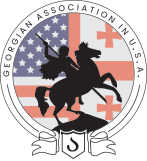Established in 1932, the Georgian Association in the USA, Inc. is the oldest non-partisan nationwide organization in the USA representing Georgian-Americans and the friends of Georgia.
The Georgian Association welcomes the incoming new administration in the United States and calls on President-elect Trump and Vice-President elect Pence to express their strong support for Georgia, and by doing so, to demonstrate the US government’s continuing support for freedom and democracy around the world. The Georgian Association calls on the incoming administration to take an active position in supporting Georgia’s sovereignty and territorial integrity, to help strengthen Georgia’s security and to deepen economic and business ties.
A strong Georgia is in the interest of the United States. That is why Georgia has enjoyed strong US support under both Republican and Democratic administrations, which have consistently defended international law and condemned aggressive violations of national sovereignty.
Georgia remains a loyal and fully capable ally of the United States; it has contributed to global security, and has been an active participant in every military campaign conducted by the US since 2003, providing significant and unconditional support. This has been achieved at the cost of Georgian soldiers’ lives.
– Georgia is a reliable and strategic transit country for the US military, for the global energy markets, and for Asia-Europe trade.
– Georgia is a vital ally to the West in a changing geopolitical environment, which includes an aggressive and revisionist Russia, a disintegrating Europe, and a volatile Turkey within an unstable Middle East.
– Georgia is a regional leader in political, economic and social reforms, a country that has defeated petty corruption, and which continues to build on policies of political and economic reform.
Georgia has achieved all these successes despite the Russian occupation of Abkhazia and Tskhinvali Region (South Ossetia), and continued Russian intimidation.
Georgia is a consistent and reliable ally of the United States. We strongly believe that the United States should continue supporting a country that has proved its loyalty, both through its participation in NATO and through its steadfast defense of US interests in the region.
